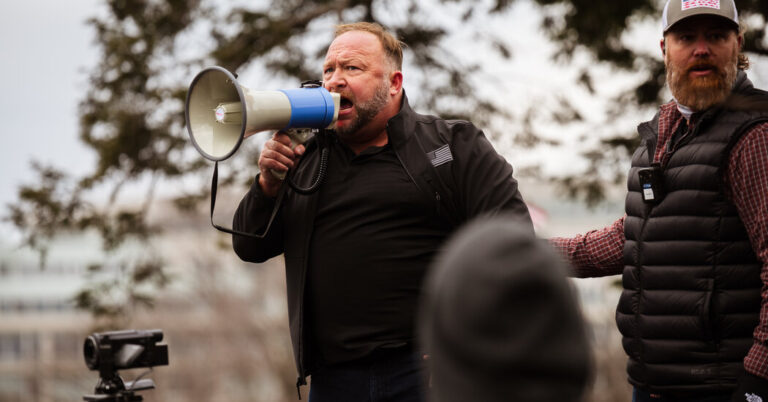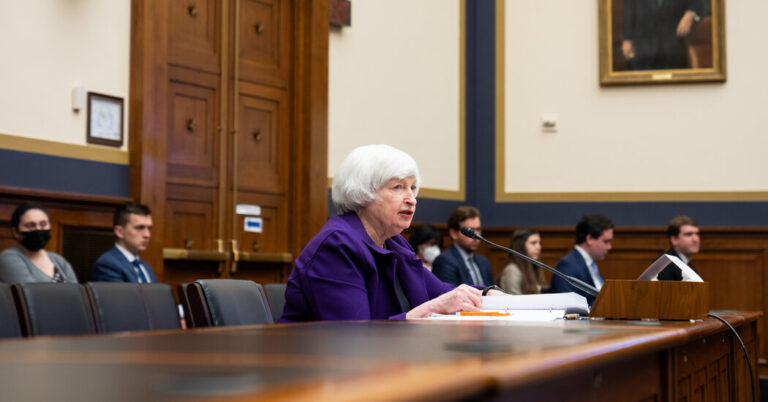Edward Caban Becomes First Latino Commissioner of New York Police
Edward Caban, who grew up in the Bronx as the son of a Puerto Rican transit police detective, on Monday became the first Latino officer to lead the New York Police Department in its 177-year history.
Mayor Eric Adams announced the appointment of Commissioner Caban, who had been serving as acting commissioner, in a morning news conference in front of the 40th Precinct in the South Bronx, where Commissioner Caban began his career as a police officer in 1991.
The move came just over a month after Commissioner Keechant Sewell, the first woman to serve in the role, resigned after only 18 months, frustrated in her attempts to act with autonomy, according to people with knowledge of her experiences in the role.
Commissioner Caban, who had previously served as first deputy commissioner, had remained close to the mayor through Ms. Sewell’s tenure. He will oversee roughly 36,000 officers and 19,000 civilian employees.
“This is an amazing moment not only for the Spanish-speaking community — this is an amazing moment for the entire city and country,” Mr. Adams said to a crowd of police officers and city leaders who chanted “Eddie, Eddie, Eddie.”
Commissioner Caban, whose rise from the precinct to headquarters was punctuated by run-ins with departmental oversight agencies, is taking over the nation’s largest police department at a critical juncture.
Morale has improved following successful contract negotiations with the city, but union leaders say that the department is still losing officers to early retirement or other agencies, with officers feeling overworked or disheartened in the wake of protests decrying police brutality.
Shootings in New York City dropped by about 25 percent through the first half of this year compared with the same period last year, but suburbanites and many New Yorkers say they remain anxious they will be victims of crime on the street or subways.
On Monday, speaking to dozens of people who stood in sweltering heat outside the precinct on Alexander Avenue, Mr. Adams credited Commissioner Caban with helping his predecessor preside over the department as shootings and homicides dropped, a decrease that reflected a national trend.
Mr. Adams also praised Ms. Sewell, saying Commissioner Caban had “a tough act to follow.”
“We knew we had to get it right,” Mr. Adams said. “We knew we had to appoint the right person.”
Commissioner Caban stood next to his father, Juan, who wept as his son described him as a mentor who, along with his mother, raised five sons.
“I am humbled to be on your team,” Commissioner Caban said to the mayor. “To have your trust and support and to lead the greatest department on the globe.”
The mayor also said that Tania Kinsella, a veteran officer in the office of the chief of patrol, would replace Commissioner Caban as first deputy commissioner.
Mr. Adams focused on what he called the “historic” nature of Commissioner Caban’s appointment and praised him for his “discipline, his attitude” and reputation among a “diversity of people who constantly told me what he meant to them.”
Among the attendees was the Rev. Oswald Denis of the nearby Rehoboth Christian Church, who recalled how Commissioner Caban participated in community events with his church when he was commanding officer of the 40th Precinct.
“We are very happy that we have a Puerto Rican, someone from the hood,” he said. “He understands our language, our lingo, how the cookie crumbles in the hood. And I’m sure crime will continue to plummet with Eddie Caban as commissioner.”
The mayor and Commissioner Caban have been close: When Mr. Adams pushed for him to become deputy commissioner in 2022, he bypassed the department’s ranks of chiefs to make the promotion.
In that role, Commissioner Caban, along with Chief of Department Jeffrey Maddrey, another close associate of Mr. Adams, frequently called the mayor directly about department business, circumventing Ms. Sewell, according to several officials with knowledge of the relationships.
Early in Ms. Sewell’s tenure it became clear that she would have far less freedom than prior commissioners to make promotions and appoint her own team. Mr. Adams handpicked Commissioner Caban and Chief Maddrey for the department’s second- and third-highest jobs.
In the weeks before she announced her resignation, she had to run discretionary promotions by City Hall, Kenneth Corey, her former chief of department, has said.
That lack of control contributed to her decision to leave the department, where she had built a strong relationship with the city’s police unions and endeared herself to many in the rank and file.
Publicly, Commissioner Caban sought to give the impression he had a warm relationship with his predecessor. On June 16, three days after Ms. Sewell announced that she was leaving, he posted a photo of the two of them smiling outside Gracie Mansion, where they had gone for a Juneteenth celebration.
On Monday morning, he thanked Ms. Sewell for her “friendship.”
“As I embark on this new journey, I’m acutely aware of the shoes I must fill,” he said. “Commissioner Sewell smashed the glass ceiling that lingered on for far too long and she did so with grace, confidence and honor.”
Commissioner Caban pledged to continue to keep crime low and to prioritize department morale.
Civil rights groups and some city leaders have criticized the department under Mr. Adams in the past year, noting the return of anti-crime units that were responsible in their earlier incarnation for a disproportionate number of fatal shootings, and were disbanded in 2020.
The units were renamed “neighborhood safety teams,” but in June, a federal court-appointed monitor found that they had stopped, frisked and searched too many people unlawfully — almost all of them people of color.
The tactics have left some community leaders and officers questioning the direction of the department and how serious its leaders are about reform, and about expanding public safety alternatives like allowing residents to respond to low-level conflict and certain 911 calls or partnering with community groups to help steer young people away from violence.
And Commissioner Caban has his own history of discipline. In 1997, the Civilian Complaint Review Board, an oversight agency, recommended that he be punished after two officers were accused of cursing at and threatening a woman in Harlem. Commissioner Caban, then a sergeant, “abused his authority,” according to the board, when he refused to give the woman their names.
In 2006, the board found that he had abused his authority as a captain when he had stopped a man on a Manhattan street while investigating robberies. When the man refused to provide identification, Commissioner Caban arrested him for disorderly conduct. The man was later released.
In a statement, the Legal Aid Society, New York’s largest provider of criminal and civil services for indigent clients, said it wanted to work with Commissioner Caban and help him “make significant inroads with the public to improve their trust in the department he’s about to lead.”
“Policing is in dire need of reform,” Legal Aid said.
Patrick Hendry, president of the Police Benevolent Association, the police officers’ union, said Commissioner Caban “knows what New York City police officers are going through right now.”
One of his top tasks will be to “reverse the current staffing crisis,” Mr. Hendry said in a statement, referring to the large number of officers who have left the department.
“There is no time to waste,” he said. “We look forward to getting back to work with him immediately to improve quality of life for our police officers and ensure public safety for our entire city.”
Among those outside the precinct on Monday was Vidal Castillo, 66, a maintenance worker for the city’s Parks Department who moved to New York from the Dominican Republic nine years ago. He had stopped to watch the announcement on his way to a friend’s store.
The ethnicity of a police commissioner, Mr. Castillo said, was less important than the task of keeping the streets safe.
“Whomever they choose should do the work that helps the community,” he said in Spanish.
Hurubie Meko and William K. Rashbaum contributed reporting.
Check out our Latest News and Follow us at Facebook
Original Source







